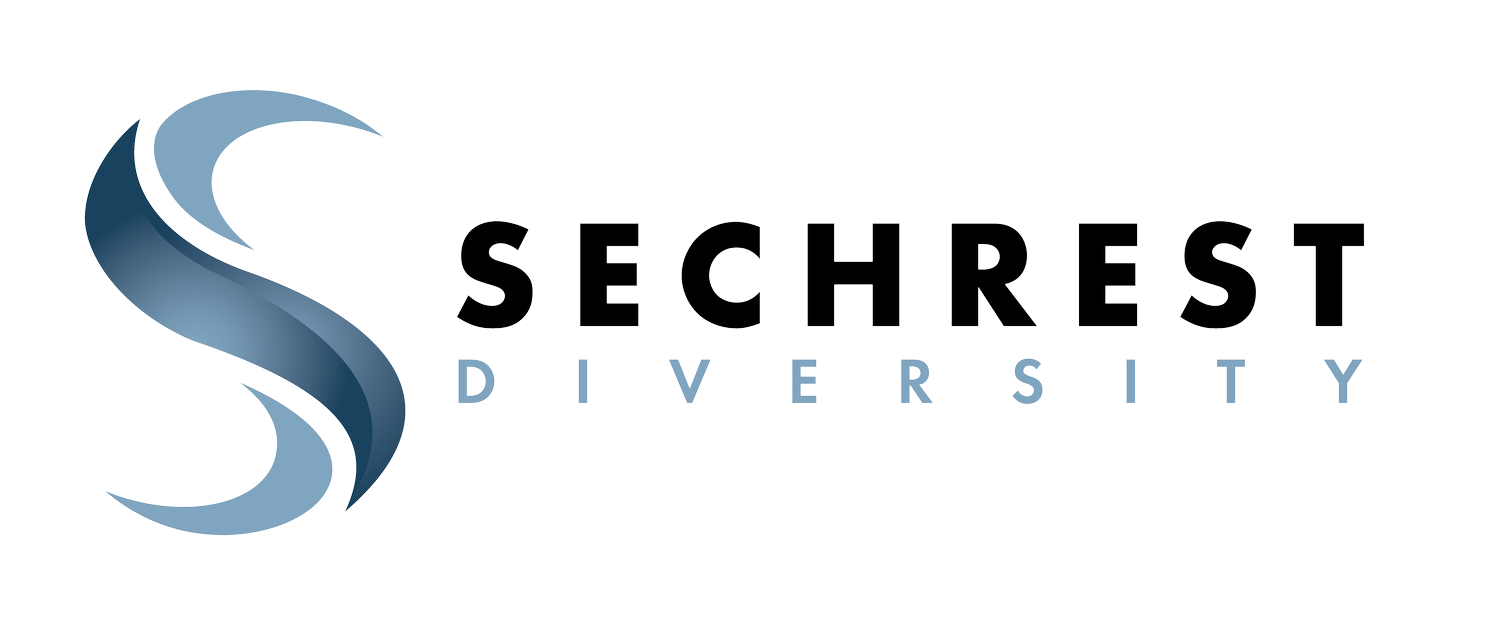
Why Diversity, Equity and Inclusion Matters
If your company or organization is not thinking about DEI and its importance, consider these recent statistics:
Companies that are more diverse enjoy 2.3 times higher cash flow per employee
Companies that have a more diverse management team has been shown to increase revenue by 19 percent
Over 48 percent of Generation Z are racial or ethnic minorities
Three out of 4 employees prefer diverse workplaces
(Source: CNBC)
For the individual
Sechrest Diversity provides introspective service offerings that explore the root causes of inequality and exclusion -- unconscious bias, explicit bias and personal experiences – by urging each participant to look introspectively and aim for betterment. The individual betterment will ultimately change the professional environment within the organization, whereby all employees’ experiences, ideas and creativity are welcomed and considered.
For the company
Sechrest Diversity works with organizations that are dedicated to diversity, equity and inclusion to provide managers, leaders and executives with training to ensure DEI is not a buzzword. Instead, DEI is a mantra by which staff and clients feel included, thought of and considered in every area of the business and organization.
Getting Started
Ask the question:
Is my company Proactive or Reactive?
You may be surprised to find that most companies are actually reactive rather than proactive. Companies and businesses are prone to respond to issues and unanticipated events as they arise rather than being proactive in creating strategies designed to anticipate potential challenges before they occur.
At Sechrest Diversity, we have witnessed firsthand the direct impact from companies becoming more proactive and striving to do the right thing for the right reasons. Companies and organizations who embrace this approach result in having a greater competitive advantage in the long term. More importantly, it makes good business sense - not just because of legal mandates or box checking.
To accomplish this, companies and organizations must follow three basic principles:
Assess the status of its current cultural competency, diversity, and inclusion program, or lack thereof.
Decide and commit to taking a proactive, rather than reactive, approach to diversity and inclusion. Diversity and inclusion work cannot solely be reactionary whereby organizations seek assistance after an incident has occurred. True resolution requires organizations to address root causes and not only focus on symptoms.
Introspectively review business practices, policies, talent acquisition, promotion and professional environment, and develop educational and training opportunities that directly improve the organizational posture on diversity, equity and inclusion.

Sechrest Diversity offers a full array of full-day and half-day workshops to meet an organization’s needs and issues by addressing the root cause. Instead of a regimented approach or curriculum, Sechrest Diversity’s workshops are tailored to each organization to comprehensive address client’s needs.
Sechrest Diversity’s approach is two-pronged:
Individual/Employee - Focus on the “self” and we provide the tools and a space for employees of organizations to discuss the concepts and issues that are typically uncomfortable and not openly discussed.
Sechrest Diversity delivers workshops that are tailored to provide solutions on various topics that help shift mindsets, behaviors and practices by incorporating valuable information regarding:
Organization - Focus on all management levels, restrictive policies, and overall professional climate.
Inclusion building techniques
Effective ways to discuss and deal with some of today’s toughest and most sensitive topics
How to loosen hardcoded mindsets to embrace diversity, equity and inclusion in the workplace
How to generate healthy and balanced power dynamics in the workplace
Greater understanding of social identity and how it may be rooted in unconscious bias and decision making
The importance of implementing social justice to reach the goal of equal distribution of wealth, opportunities and privileges within a group or community




